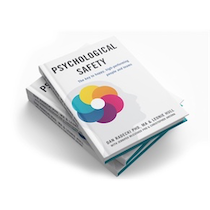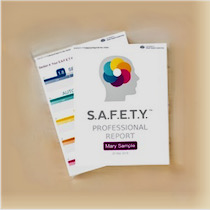The Logical vs Emotional Brain
Understanding and managing the battle during challenging times
In the extended pandemic global crisis we are witnessing humanity at its best and its worst – and it is understandable in such unpredictable times. When our safety and security are threatened it triggers the fear response in our brain that spirals us into panic, stress and anxiety – but it doesn’t have to be that way.
Join neuroscientist Dr Dan Radecki to learn more about your brain’s basic operating principles, its natural response to uncertainty and unpredictability and some scientifically proven strategies to better manage your stress and emotions, and boost your brain health and resilience.
Share with family, friends and others in your network who you think may benefit from learning coping strategies in these challenging times.
Presenters

Dr Dan Radecki
Co-founder & Chief Scientific Officer










